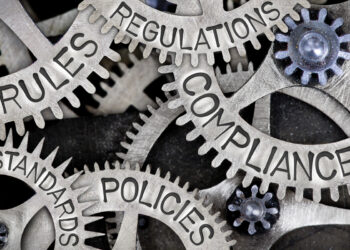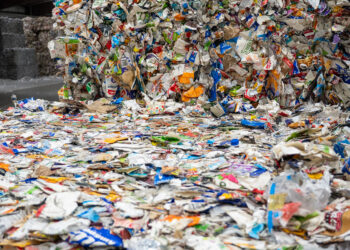The next occupants of Congress and the White House likely will bring changes to corporate taxes, project permits, worker protections and other industry concerns no matter who wins this year’s elections, legal experts said last week during the first of four webinars hosted by the Recycled Materials Association about the 2024 races. But uncertainty still reigns when it comes to who will win, what they’ll be able to accomplish and how states and courts will respond.
“You’ll just want to buckle your seatbelt and hang on,” said Timothy Taylor, a partner with the Florida-based multinational law firm Holland & Knight. He joined several of his colleagues on Sept. 4 to speak specifically about the national elections’ business and labor impacts.
“If we have a divided Congress, my guess is it’s going to be hard to get much legislative activity done, so states are going to pick up on that,” Taylor added. Legal challenges also have slowed or halted many recent executive branch employment efforts, such as the Federal Trade Commission’s proposed ban on noncompete agreements last month. The next administration will decide the fate of the Department of Labor’s recently proposed worker protections against extreme heat as well, he said.
The dynamic of lengthy legal challenges will probably continue with the next administration, Taylor said: “I think you’re just going to see a lot of uncertainty and volatility.”
The webinar series is open to ReMA members and continues with a session about international trade on Sept. 18, environmental impacts on Oct. 8 and a roundup of election results on Nov. 20.
Recycling overall enjoys bipartisan support, and the topic isn’t featured explicitly in either Vice President Kamala Harris or former President Donald Trump’s platforms. But recycling becomes more partisan when it comes to actual behavior and policy, with more Democratic states tending to recycle more and to enact legislation like extended producer responsibility for various materials. The Biden-Harris Administration has overseen the distribution of more than $90 million in recycling infrastructure and education grants from the 2021 Bipartisan Infrastructure Law, which passed with bipartisan, but mostly Democratic, support.
Other aspects of the parties’ priorities will affect recycling and other industries more broadly, the webinar panelists said. The Biden-Harris Administration has embraced environmental concerns and labor unions, for instance, while Trump’s administration prioritized corporate deregulation and tax cuts that will soon expire.
“All of these things I think make a perfect kind of cocktail,” said Nicole Elliott, another partner at Holland & Knight who spoke of an approaching “tax Superbowl.” “We’re going to be talking about taxes in 2025.”
The webinar didn’t touch on the topic of immigration, but immigrants make up a significant portion of recycling workers, recycling executives have said in recent years. Trump has said he’d restrict legal immigration and use the military to conduct a massive deportation operation of those in the country illegally, which he said will be “a bloody story” earlier this month. Harris supported a bipartisan deal to boost border security that Trump helped quash.
There are some potential areas of bipartisan agreement that could see legislation no matter what happens in November, including paid leave and streamlining the permit process for major construction projects, Holland & Knight partners Dimitri Karakitsos and Liz Craddock said. Democrats traditionally favored more government scrutiny of projects’ environmental impacts, Craddock said, but then they “realized permitting is also a problem for renewable energy.”
“Both sides of the aisle would like to see permitting reform legislation pass,” she said.





























